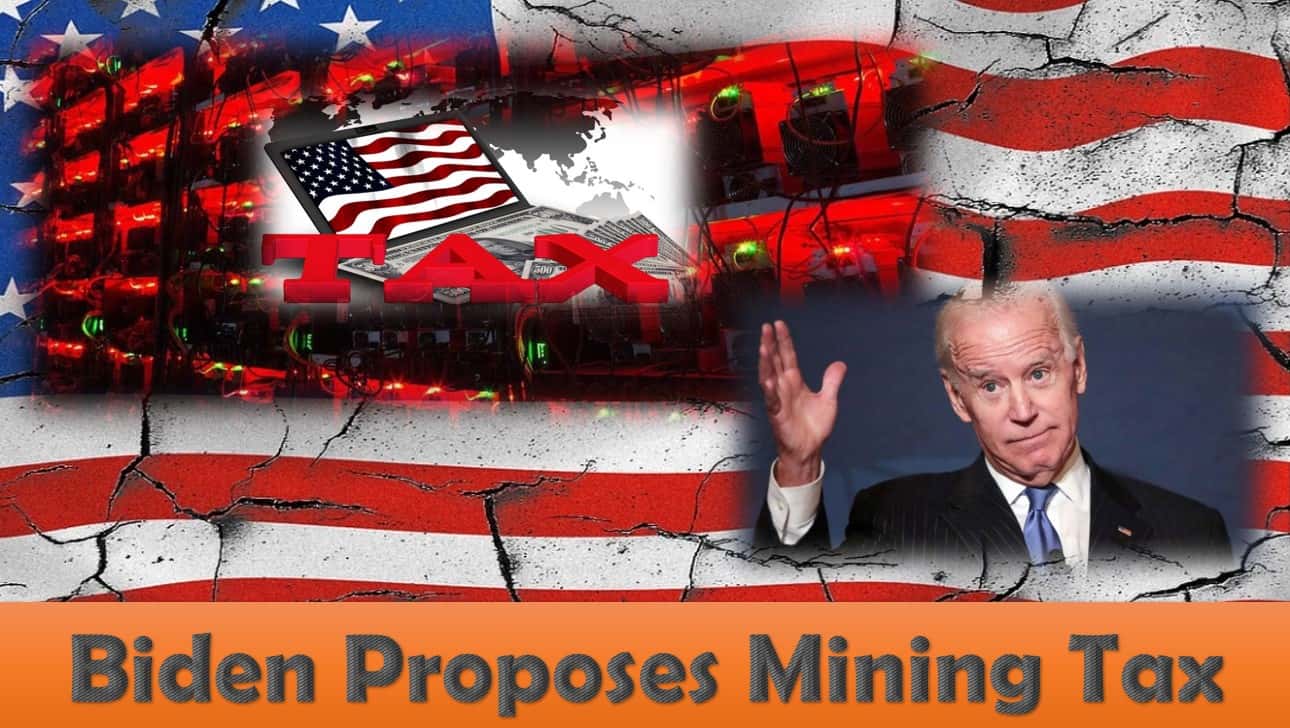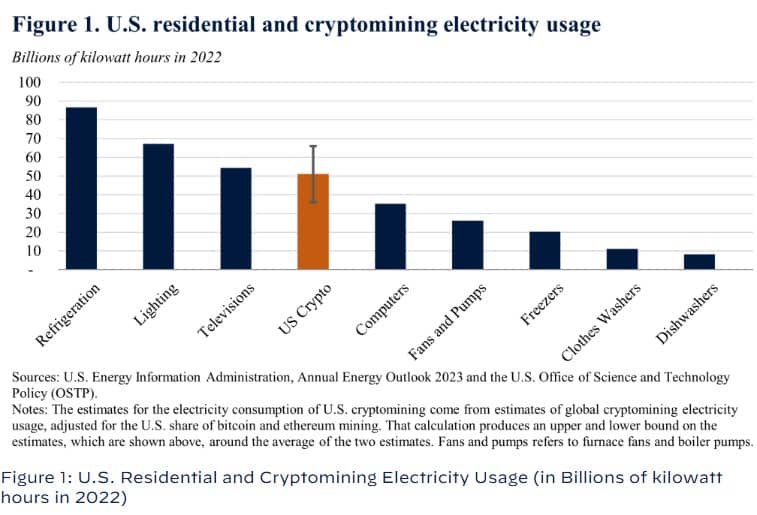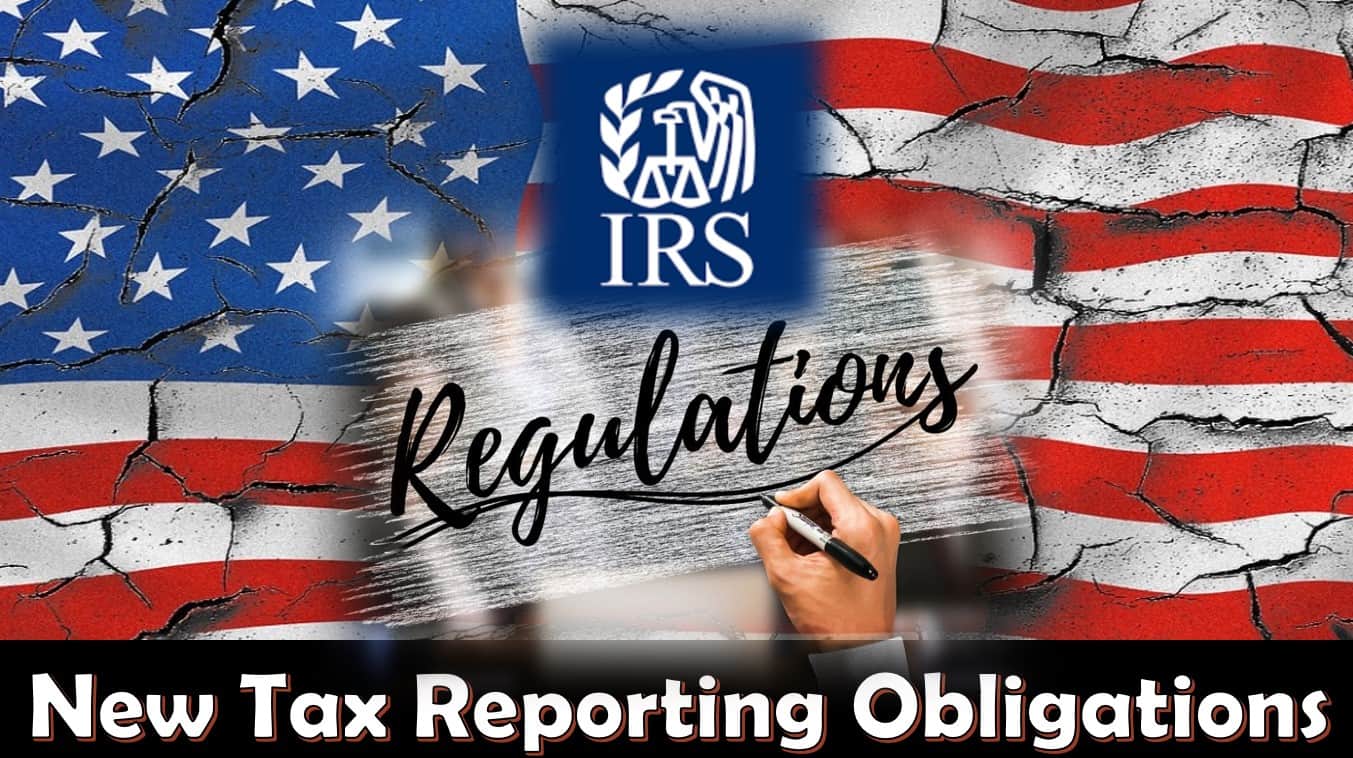
Crypto Mining in the Crosshairs: Biden’s Proposed 30% Tax
The White House is urging Congress to impose a tax of 30% on cryptocurrency miners because of the amount of electricity they use. This proposed tax is part of the upcoming federal budget plan.
According to a blog post posted on the White House website from the President’s Council of Economic Advisers (CEA), the high energy consumption of “cryptominers” has negative effects on the environment, electricity grids, and quality of life.
The CEA argued this point by saying:
“Cryptominers’ high-energy consumption has negative spillovers on the environment, quality of life, and electricity grids where these firms locate across the country”
The post argues that the proposed Digital Asset Mining Energy (DAME) excise tax will be a crucial step in the administration’s fight against climate change and efforts to reduce energy prices.
White House Lays Out It’s Argument
In an attempt to solidify it’s argument, the White House is utilizing statistics from the Environmental Protection Agency (EPA) and the Energy Information Administration (EIA).
According to the EPA, burning fossil fuels to create electricity is responsible for 25% of annual U.S. greenhouse gas emissions and harmful air pollutants such as nitrogen oxides and particulate matter.
Proof-of-Work (PoW) mining, such as is used by Bitcoin and other cryptocurrencies, can be energy-intensive.
In short, the process involves powerful processors called ASICs (Applied Specific Integrated Circuit) to solve complex mathematical puzzles.
Learn More About Proof-of-Work (PoW)
The White House put out a report on this topic last September. The report highlights that cryptocurrency mining consumes more power than the entire country of Australia.

Furthermore, in the U.S., where almost one-third of all crypto mining operations are located, the report states that crypto mining contributes to an estimated 0.9% to 1.7% of the country’s total electricity use, thus significantly impacting its greenhouse gas emissions.
Targeting The Crypto Industry
The cryptocurrency industry here in the U.S. seems to be taking hits from federal regulators from all angles.
These include enforcement as regulation actions from the SEC, the CFTC, as well as state governments.
But attacks on the crypto industry aren’t just coming from federal agencies. Even at the local level, crypto businesses are meeting with opposition.
For example, in New York state, cryptocurrency miners purchased a decommissioned natural gas fired power plant. This led state legislators to pass a bill placing a 2 year moratorium on the licensing of any future crypto mining facilities powered by fossil fuels.
But crypto in the U.S. isn’t going down without a fight.
Crypto Industry Pushback
While all of these attacks on crypto seem to be almost endless, the industry as a whole has many supporters in various levels of government.
Some of these supporters are speaking out and companies in the space are starting to fight back as well.
This increasing opposition from the industry can be seen at all levels. This industry pushback, at least on the federal level can be seen in Ripple fighting the SEC, as well as Coinbase suing the SEC.
As for this 30% tax proposal, it has drawn the ire of the entire crypto industry.
This can be seen in comments from Dennis Porter, CEO of the Satoshi Action Fund as he took to Twitter.
As he talked about this tax proposal having the effect of driving crypto mining to other more crypto friendly countries, he said
“Imagine if we put a 30% tax on internet companies in the 90’s. It would have ensured all the jobs and economic growth occurred outside the USA.”
Prime examples of this potential exodus from the United States can be seen from major crypto industry players like Ripple Labs and Coinbase.
But the pushback doesn’t end there, it continues on a state and local level.
One example of this can be seen in Texas. A recently launched campaign dubbed, “Don’t Mess With Texas Innovation.”
This rebuke is being led by the Texas Blockchain Council. It comes in response to the proposed legislation to eliminate incentives for Bitcoin miners to operate in the state.
But, how balanced is this information that is coming out against the crypto industry?
What Bitcoin Offers The World
As the administration advocates for their proposed tax on miners, their argument appears to be a bit one sided. This unbalanced contention by the Biden administration is an obvious attempt to bring all powers at their disposal to bear on the crypto industry.
This attack by government officials includes the one-sided mainstream media produced content as well as legislation from friendly state governments.
In an attempt to balance out the narrative regarding the cryptocurrency industry as a whole and the crypto mining industry specifically, let’s take a look at some of the positive aspects offered by Bitcoin and crypto.
Bitcoin Secures Power Grid
Bitcoin miners are helping to secure the power grid in numerous ways. In cities around the world, Bitcoin miners are working with energy companies to balance the grid and increase its resiliency.
One of the most notable examples is in Texas, where Bitcoin miners have been working with the Electric Reliability Council of Texas (ERCOT) to help stabilize the state’s power grid.
According to a report by S&P Global, crypto mining in Texas has accounted for a significant portion of industrial demand, and Bitcoin mining is the perfect load for renewable energy. By using excess energy from wind and solar farms to mine Bitcoin, miners can help balance the grid and prevent blackouts during times of high demand.
To help incentivize miners to participate in this process, Texas has created a voluntary program to reduce power consumption during periods of high demand.
This program, which went live in the state in January, has been met with enthusiasm from the crypto industry, with many miners signing up to participate.
Despite the environmental concerns associated with Bitcoin mining, many experts believe that it can be an important tool for securing power grids in the future.
By working closely with energy companies and using excess energy from renewable sources to mine Bitcoin, miners can help create a more sustainable and resilient energy system.
This idea was highlighted in a bold statement made by Texas Congressman Pete Sessions, speaking about the future impact of Bitcoin mining on the United States.
As a proponent of Bitcoin mining, Representative Sessions took to Twitter on Tuesday to assert that
“Bitcoin mining will play a critical role in rebuilding energy independence in the USA.”
As expected, this tweet was met with a mix of reactions from both supporters and critics of cryptocurrencies.
Senator Cynthia Lummis of Wyoming, a known Bitcoin supporter, was among those who supported Sessions’ statement.
As energy independence remains a crucial issue for the United States, the question of whether Bitcoin mining can play a critical role in rebuilding it remains to be seen.
However, as miners continue to work with energy companies and develop new technologies to balance the grid, it is clear that Bitcoin mining has the potential to play a significant role in securing our power grids.
Good For Society
Cryptocurrencies and Bitcoin, in particular, have the potential to revolutionize the way we conduct financial transactions.
For starters, using cryptocurrencies removes middlemen from the equation. This means that users are able to make payments directly to each other without having to worry about any third-party interference or control.
In addition, these currencies are decentralized and backed by blockchain technology, meaning that transactions can be verified in real-time. This provides an added layer of security to the process and helps protect against fraud.
Finally, using cryptocurrencies and Bitcoin helps to promote autonomy. By giving individuals, across the globe, the ability to be their own bank will help increase freedom for all individuals.
Why Bitcoin and Crypto is Good For Society
Future of Mining Regulations
As Bitcoin and other cryptocurrencies continue to gain popularity, so does the debate over their impact on the environment and the energy grid. While there are certainly valid concerns about the energy consumption associated with Bitcoin mining, recent developments have shown that it can also be used as a powerful tool.
As we look to the future, it is clear that Bitcoin mining will continue to play an important role in shaping the energy landscape. The question remains as to whether or not legislators and energy companies will support the growth of this emerging industry and utilize it to improve our energy infrastructure.
Disclaimer
The information provided here is for INFORMATIONAL & EDUCATIONAL PURPOSES ONLY!
View our complete disclaimer on our Disclaimer Page






